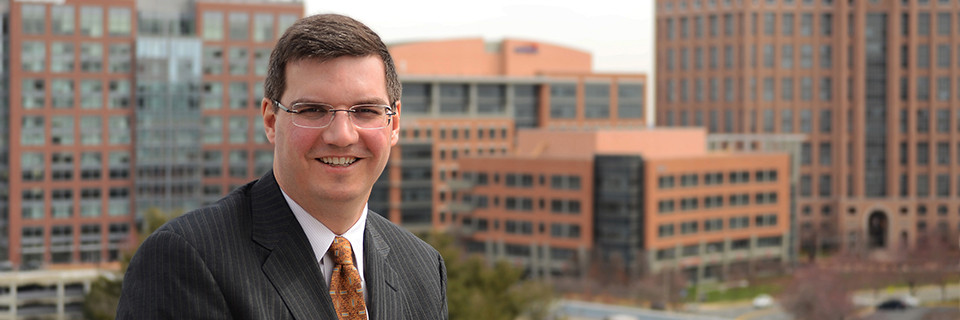In cases involving unfair business practices, money damages may not be the best, or only, remedy to pursue. In situations where an ex-employee is using and disseminating company trade secrets, a more important strategy may be to ask the court to order the defendant to stop his activities. An order of this nature is called an injunction. However, the exact order requested by plaintiff may be limited by the court, as occurred in a recent Virginia case, even when a complaint goes completely unanswered by the defendant. Courts may craft an injunction to make it more reminiscent of the harm involved in the particular case, as the U.S. district court did in Autopartsource v. Bruton et al.
Autopartsource, LLC, which is in the business of manufacturing and distributing aftermarket automobile parts, sued its former employee, Stephen C. Bruton (“Bruton”) and Bruton’s new company, BBH Source Group, LLC (“BBH”). It claimed that defendants stole its trade secrets and tortiously interfered with its business contracts and business expectancy. Autopartsource sought damages over $1 million, punitive damages of $350,000, attorneys’ fees of $59,404.72, and asked the court to issue injunctions, which would order BBH to stop producing products and to stop using Autopartsource’s trade secrets. BBH did not respond to Autopartsource’s complaint.
Although overall victory of the claims was awarded to Autopartsource, the amount of money and injunctive relief requested was limited by the court.
The court held a hearing, requiring Autopartsource to show why it was entitled to the relief sought. The court found the following facts in Autopartsource’s complaint to be true: Bruton worked for Autopartsource as its Director of Product Development. He had knowledge of Autopartsource’s most valuable trade secrets and confidential information, including industry contracts, customer information, pricing, costs, vendor information, and produce development data, due to his position in product development and his role in helping to develop those trade secrets. Autopartsource sent Bruton to China to develop business, and assigned one of its contractors, Lili Huang, to work directly with Bruton. In August 2011, Bruton and Huang secretly formed BBH with the intent to use Autopartsource’s goodwill, business opportunities, trade secrets, and company resources to generate business for BBH. BBH was stealing deals right from under Autopartsource, including deals Autopartsource was specifically targeting. After Huang admitted their wrongdoings to Autopartsource in 2012, Autopartsource terminated Bruton.
The court found that Bruton used his position as Director of Product Development to acquire confidential and proprietary information. This information was determined by the court to constitute trade secrets. For a trade secret claim to be successful, it is important to show how the company attempted to keep the information a secret. The court recognized Autopartsource’s attempts to protect its claimed trade secret information by implementing a company-wide confidentiality policy which governed all employees.
The court also found that Bruton knew the information was a trade secret, because just after being fired, Bruton secretly deleted Autopartsource’s trade secrets off of the laptop. The court found that Bruton took those acts in order to hide the fact that he stole the information which was then used by his new company, BBH, with knowledge that the information was improperly taken. This amounted to a violation of Virginia’s trade secrets act, the court decided.
In addition, Huang and Bruton knew that Huang was not permitted to work for Autopartsource’s competitors, due to an employment contract in place. But BBH nevertheless hired Huang, which the court held amounted to tortious interference.
Upon finding BBH guilty of the claims in the complaint, the court then had to decide whether the relief asked for in the complaint was appropriate.
The court awarded Autopartsource the full $616,237.35 requested as unjust enrichment for the time and resources Autopartsource expended on developing the trade secrets that BBH stole, which included the time Bruton spent working on the trade secret development. The court awarded the approximately $50,000 requested as payment for Huang’s salary while she was employed with BBH.
As to punitive damages, the court emphasized the fact that Autopartsource offered no evidence about BBH’s ability to pay. While the court found that Bruton’s deleting of trade secrets from Autopartsource’s computer “is precisely the sort of ‘most egregious conduct’ that justifies an award of punitive damages under Virginia law,” with not much to go off of in terms of BBH’s available funds, the court only awarded $75,000 in punitive damages, instead of the $350,000 requested. Op. at 17 (quoting Owens-Corning Fiberglas Corp. v. Watson, 413 S.E.2d 630 (Va. 1992).
In addition to a request for money, Autopartsource requested injunctions from the court. The court found that a permanent injunction prohibiting BBH from using Autopartsource’s trade secrets was completely appropriate. However, as to the second injunction requested by Autopartsource which asked for a broad order requiring BBH to stop competing at all as a distributor of aftermarket automotive parts, the court was less generous. The court decided that this request went too far and instead ordered that BBH could not source those products that Autopartsource sourced in China during Bruton’s tenure with the company. This allowed BBH to still source products that Autopartsource does not deal in. And instead of the limitation applying to all markets worldwide, the court limited the injunction to apply only to the U.S. and Chinese markets, since those are the only markets where Autopartsource has a presence. Lastly, while Autopartsource requested that the injunction last 7 years, the court decided that a 3-year injunction was more appropriate.
As shown, even when a default judgment is granted, and the facts presented by Plaintiff are considered to be true, the court will still ensure that the damages and other relief requested are fair and not disproportionate to the harm.

